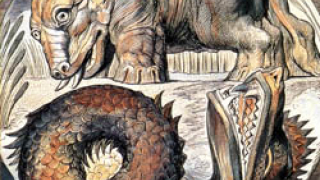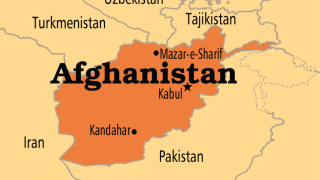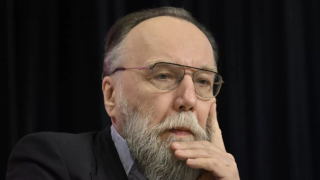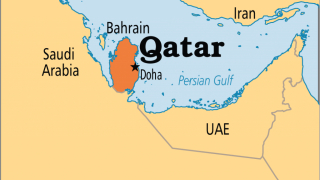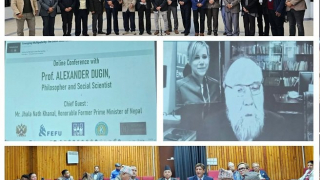Alexander Dugin on Carl Schmitt: Russia needs radical Politics
15.04.2020
Look at the author more precisely
Who speaks of silence, oh nicely;
For while, he is speaking of quiescence
He outwits his own obsolescence
(Schmitt’s famous stanzas written during his jail time in Nuremberg, 1946)
If we compare the writings of Carl Schmitt with the writings of Machiavelli then the pattern is same because Carl Schmitt also lacks sentimental moralism and ethical magniloquence, in his representation of the political reality. For Schmitt, in order to determine legal issues, it is important to give a clear and realist outline of political and social processes. Basically Carl Schmitt was an expert of European Jurisprudence especially in the analysis of law and the political context of jurisprudence. According to Carl Schmitt’s philosophy of law, political principles have unconditional primacy over the principles of social existence.
The economic contradiction have now become political contradiction—thus the argument made by Carl Schmitt is purely sociological and historical, which can be understood through the theory of ‘Collective historical idealism’. In this theory, subject is not individual and economic laws developing substance, but a concrete, historically and socially distinguished people, which hold special dynamic will—endowed with its own law. Moreover, the distinguishness of people can also be understood through socio-economic existence, qualitative unity, and through the organic and spiritual continuity of its traditions at different forms and stages.
Basically, Carl Schmitt’s political sphere is directly associated with two factors which the mechanistic doctrines are disposed to ignore:
- First, the historical specifities of people endowed with the special quality of will.
- Second, the historical particularity of the given society, state, tradition and past.
In this regard, Carl Schmitt’s assertion of the primacy of politics has introduced qualitative and organic characteristics into legal philosophy and political science, which are obviously not included in the one-dimensional scheme of the so-called ‘Progressives’; whether liberal or socialist. In contrast, Schmitt theory considers politics as an organic phenomenon rooted in soil. For Dugin, Russia and Russian people needs such understanding of politics in order to govern their destiny to preserve themselves once again from being the hostage of decadent and reductionist ideology, which ignores the will of people, the past, the qualitative unity, and spiritual meaning of the historical path.
In his book “Theory of the partisan: Notes on the he concept of Political” Carl Schmitt says; “people exists politically only, if it forms an independent political community and contrast itself to other political communities for the sake of preserving its own understanding of specific community”. In this regard, the humanist demagogy of Marxism and liberal democratic theories does not accept this crude fact—it is mainly because, the post-enlightenment conscience is unable to grasp this fact. In addition, the political division between ‘ours’ and ‘not ours’ not exists in all ‘states’ and ‘nations’—moreover, without this distinction and division not a single nation, community and state can preserve its identity and have a history.
To deconstruct this utopianism, Carl Schmitt notes: “if one begins to act in the name of all humanity, on behalf of abstract humanism, in practice this means that, this actor denies all possible opponents the claims to having human qualities at all. Thus, declaring himself to be beyond humanity and beyond law, therefore potentially threatens a war, which would be waged to the most terrifying and inhumane limits.” In the latter context, the Marxist and liberal democratic ideologies instead of accepting the political division between ‘Ours’ and ‘not Ours’ strives for the total universalization of the nations and states surrounding the dystopian ideas of ‘United and Uniform humanity’. In this regard, in order to deconstruct the Marxist and liberal universalis dystopia, Carl Schmitt has developed the theory of ‘total war’ and ‘restricted war’—often known as the ‘war of forms’.
For Schmitt, the outbreak of the ‘total war’ was the consequence of the universalist Utopian ideology, which denies the natural cultural, historical, state and national differences between people—such a war actually threatens the realm of the whole humanity. In Schmitt’s opinion, extreme humanism is always prone to the outbreak of such wars, which involves not only militaries but also civilians in the conflict.
On the contrary, the ‘restricted war’ or the ‘war of form’ is inevitable because of the differences between people and their culture. Moreover, the ‘war of form’ involves only professional soldiers in the battlefield and can be regulated by the defined legal norms of Europe Jus Publicum Europeum or the European Common Law. Basically, the ‘war of form’ represents the lesser evil that can save humanity from the outbreak of the ‘total war’.
The latter can be understood in the famous paradoxical scene postured by Shigalev in Dostoevsky’s famous novel ‘The Possessed’—who says by ‘preceding from the absolute freedom; I arrived at the absolute slavery’—perhaps, this epical paradox can be applied to Carl Schmitt’s analysis that is by ‘ preceding from the total peace; I arrived at the total war’. In a broader context, the great political division between what is ‘ours’ and what is ‘theirs’ contemplates deep existential problem of our time, which can be understood in the following way: “The enemy-friend duality lends politics an existential dimension, since theoretically implied possibility of war raises the problem and the choice of life and death in this framework”.
On the contrary, the utopian humanists epitomizes nothing but a clear warning of the outbreak of the ‘total war’ by absolutizing the idea. Perhaps, this can be clearly seen during the American invasion of Iraq, during which the Mainstream Media justified the so-called humanitarian invasion by ignoring the massacre of millions of innocent civilians. In this regard, the phenomenon of so-called humanitarianism (a complete absolutized fact) was preferred over humanity by philosophizing it.
In the context of legal-political philosophy, one of Carl Schmitt’s important idea was the principle of ‘Exceptional circumstances’. It is because, the legal norms explains the normal socio-political reality, which is generally described as ‘law’ and Jurists apply this law to find solution for the normal problems. But in some cases, the ‘extraordinary situation appears’ to which the normal law cannot be applied. In addition, the extraordinary situation always surpasses the normalcy of the situation and by transcending the nature of situation. In this regard, the complex jurisprudence is required to explain the complex nature of the given situation.
On the other hand, in Schmitt’s opinion, the classical jurisprudence always absolutize the situation and the idea around that situation. In this way, it considers the history of society as uniform process. For instance, Kelsen’s ‘pure theory of law’ also explains the legal domain in the same way. But in Schmitt’s view, this absolutization of the ‘rule of law’ and ‘legal approach’—as an equally utopian mechanism and naïve universalism produced by the enlightenment with its rationalist myths. Schmitt calls ‘Exceptional circumstances’ as Ernstfall—in this regard, Ernstfall is a situation in which political decision is made, which can no longer be regulated by the conventional legal norms.
Moreover, decision making during exceptional circumstances is always a diverse process in terms of the organic factors relating to tradition, past, history, heroic overcoming and the manifestation of deep ‘existential energies’. The term ‘decision’ was the key concept of Carl Schmitt’s juridical doctrine—therefore, decision, which have been taken during ‘exceptional Circumstances’ is true decision, which also makes it an ‘emergency Citation’. In contrast, exceptional circumstances often resembles catastrophe and disaster, which appeals to people historical essence, its core and secret nature, and identity.
In this regard, the decision taken during these exceptional circumstances define the will of people regarding global, existential and historic challenge. In addition, in France the followers of Carl Schmitt have developed a special term ‘decisionisme’—basically the whole discourse of decisionisme or decisionism puts emphasis on the exceptional circumstances. It is through ‘exceptional circumstances’ people realize their past and actualize their history. Moreover, ‘exceptionalism’ defines the tragedy and describes the actualization of the phenomenon—it is time which reveals everything from history to people’s identity.
In a nut shell, Carl Schmitt through his theory of Ernstfall (Exceptional circumstances) and Entscheidung (Decisionisme) clearly showed us that social and judicial norms often overturns due to exceptional circumstances and the decision, which has been taken in response to that circumstances. Moreover, the normal norms remain constant and exists until the exceptional circumstances appear—perhaps, this reveals the inherent contradiction of those ideas; which supports the ‘Rule of law’. It is appearance of exceptional circumstances, which defines the political will of people—therefore, the legal model should reflect the will of the people.
Carl Schmitt and the Geopolitics
Carl Schmitt has also contributed at a greater scale to the field of geopolitics through his famous concept of ‘Greater Space’ known as ‘Grossraum’. Through his notion of the ‘Greater Space’ Schmitt projects specific geographical regions with specific kinds of ethnicities and identities that can form a ‘Great geopolitical Union’. Today, if we take into account the ‘Eurasian Idea’ in Schmitt’s concept of the ‘Greater Space’ then it clearly fulfills the condition for the geopolitical union because it inhabits large and diverse cultural communities.
In addition, Carl Schmitt’s concept of the ‘Greater Space’ encapsulates a flexible political system that bring and reimburse various ethnic and cultural communities through federation. Likewise, it is through this kind of Federation, the outbreak of the total war can be prevented. In Schmittian view, the essence of the ‘Greater Space’ is the organic and natural demonstration of the diverse ethnicities and cultural communities—the natural space will form natural continent.
On the contrary, the concept of the ‘Greater Space’ exemplifies the meta-state, which transcends itself into an empire. In this regard, the socio-political aspects of this empire manifests the co-existence of the collective identities. In the context of geopolitics, the macro-states are stable because of the elastic political structure and organic realization of the cultural communities. Furthermore, it is a vivid fact that the Schmittian concept of the ‘Grassraum’ or ‘Greater space’ has clearly provided the political vision to the continental communities e.g. Asia-Europe or Afro-Asia.
As an illustration, Carl Schmitt’s idea of the ‘Greater Space’ also anticipates the essential geopolitical ideas of famous theoreticians such as Halford Mackinder, Rudolf Kejellen and Spykman. Moreover, in the broader geopolitical domain, Schmittian concept of the ‘Greater Space’ explains the rival curve between the Tellucratic societies (land-based empire) and the Thalassocratic societies (Ocean-based empire)—which are in the state of natural conflict over macro-interest and continental hegemony. Likewise, the point is to be noted that there are no absolute Tellucratic and Thalassocratic states because the shape and pattern often changes with time. But the logic of the ‘greater space’ always remains pertinent in the broader geopolitical discourse.
On the other hand, Russia in the context of Schmittian concept of the ‘Greater space’ represents an organic formation with Eurasian continent both geographically and culturally. Basically, the Russia-Eurasia manifests a complete Tellucratic empire with sacred natural frontiers alongside the Euro-Asian steppes. However, during the time of Soviet Union the moribund Marxist ideological demagogy in Russia failed to provide a flexible political structure for the diverse ethno-cultural communities. Consequently, the Russian yoke represents a natural and organic imperial space in the Eastern Europe by juxtaposing it with the sacred space of the other Eurasian region. In this regard, the Russia-Eurasia conglomerate clearly preserves the essence of the ethno-state identities—the continental level self-consciousness.


